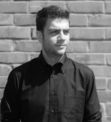Falling through the genre cracks
The Guardian has an article today by David Barnett about the mixing of crime with other genres. A comment by Stuart MacBride gave me deja vu all over again:
“Halfhead is what I like to call a near-future thriller. Why? Well because there’s a weird thing that happens with crime fiction … If you write a kidnap story set in ancient Rome, it’s historical crime fiction. If you write a murder set in Elizabethan England, it’s historical crime fiction. If you write a bank robbery in the Victorian era: historical crime fiction. WWII serial killer: historical crime fiction. Write a sex offender case set now, it’s crime fiction. Set the same crime 20 years into the future and suddenly it’s SCIENCE FICTION!!! RUN AWAY!!! And a lot of readers won’t even try it. There’s something about a book set in the future that makes them think of aliens, space ships, and pasty teenagers living in their parents’ basements…
That is exactly what happened to the Strange Trilogy. The trilogy was never meant to be science fiction. It is the chronicle of a society losing its mind, told through the point of view of a detective on the sharp end of its collapse. All of the technology in the books is around today, and most of it has been around for a while. I am deliberately vague about exactly how far in the future it is, but a rough comparison would be someone from the mid-nineties looking at today. The changes in technology, like smartphones, pale in comparison to the social changes wrought by 9/11 and the War on Terror.
Yet, as MacBride says above, as soon as people hear ‘future’ they think robots and spaceships. Booksellers now sell things in hyper-specific niches, so my near-future noir, rather than drawing strength by straddling genres, ended up being unloved by all of them.
This is not a problem with readers — the examples of crossover success cited in the article like Mieville’s City and the City show that — or even narrow-minded marketers, though there is some blame there. The real problem is expectation. That is what fills people’s mind with death-rays when they see future. So, even though the trilogy was written in a noir style, and the First Stone especially is crime (The Rapture and Children’s Crusade are closer to MacBride’s “near-future thriller”) it probably would have been easier to market it as science fiction, even though there’s barely a lick of science in it.
Mieville was an established SF writer when wrote City, the same way MacBride was an established thriller writer before he tried to cross over. They both had readers that trusted them to pull them out of their genre comfort zones. For the same reason, no one calls The Handmaid’s Tale or Brave New World science fiction, though both are concerned with the impact of technology on human civilisation. Huxley and Atwood are literary writers, therefore they write literary fiction, futuristic scenarios and fantastic machines notwithstanding.



